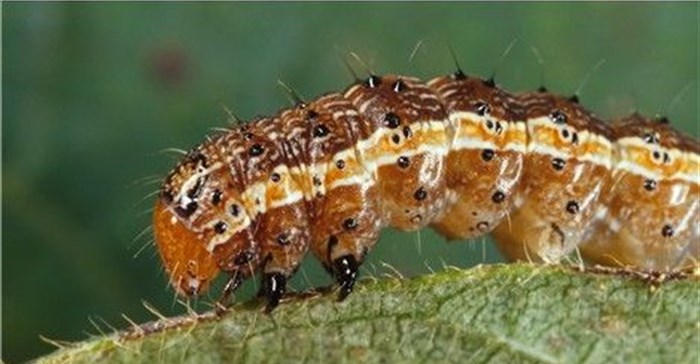Simple concoction found to halt Fall armyworm

Robert Lokang, leader of the Bidaya Farm association, says he regularly sprays his crops with a concoction of tree leaves, ash, powdered soap and water. The all-natural formula is designed to kill the armyworms while not harming the plants.
It's not a new invention - Lokang says he learned it decades ago as a child when his father used the same concoction to ward off pests.
He says about a year ago, the NGO Care International showed local farmers how to use the mixture as a replacement for pesticides. He says his group decided to try it on the Fall armyworm and it worked.
Fall armyworms, which are native to the Americas, have spread across Africa since 2015, raising alarm among farmers and agriculture officials. The pests thrive in warm and humid climates, travel great distances quickly, and devour maize, cotton, sorghum, and vegetable crops. They were first detected in South Sudan in June, although they could have arrived earlier.
Lokang says he suffered severe financial losses last season after Fall armyworms tore into his eggplants, tomatoes, onions and cabbages. “They are eating the leaves and other insects. They also destroy the roots and the ones we transplant when the fruit is ready, they also get rotten,” Lokang told VOA's South Sudan in Focus.
Cost effective method
Lokang's concoction is fairly simple to make. “We collect the neem leaves, almost one bucket, then we soften or grind [them] using stone, then we get ashes and some Omo (powdered soap) and mix it in a basin of water, and keep it for two to three days before spraying,” he said.
Imatong farmer Mary Peter said mixing the concoction and spraying it manually is tedious, but effective. “This is the fourth planting that I am seeing some changes after we have used neem and red pepper. After the spraying they have grown bigger," she said.
United Nations and government officials say regular insecticides do not work on the Fall armyworm.
Awello Obale, an official at the state agriculture ministry, said Lokang’s method is cost-effective since there is no other immediate solution to the Fall armyworm infestation. “We encourage farmers... to use the cultural practices to control not only armyworm but other insects also,” Obale said.
Fortunately, neem trees are plentiful in the area. Obale says farmers should take advantage of Lokang’s simple method.
UN Food and Agriculture Organization officials say they will introduce new crop varieties in Imotong State thought to be resistant to armyworms and other pests. The new crop varieties include maize, rice, cow peas, groundnuts and beans.
Source: allAfrica

AllAfrica is a voice of, by and about Africa - aggregating, producing and distributing 2000 news and information items daily from over 130 African news organisations and our own reporters to an African and global public. We operate from Cape Town, Dakar, Lagos, Monrovia, Nairobi and Washington DC.
Go to: http://allafrica.com/







